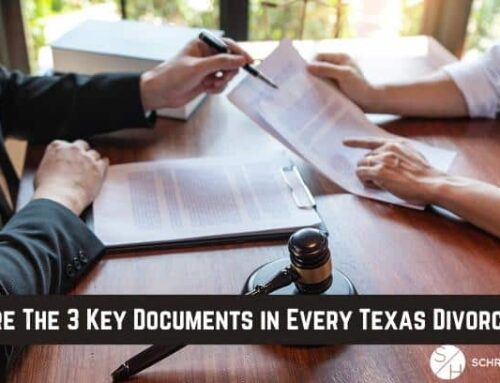In a community property state like Texas, divorce lawyers advise that while all marital property is divided between the two spouses, there is no law that says it must be divided 50/50.
Divorce attorneys will instead explain the law of “just and right” division of property and how it can apply to a divorce.
When negotiating for the just and right division of marital property, Texas family law attorneys find a number of instances where one spouse is awarded more or less than half of the couple’s wealth by the family court.
Couples facing a future divorce should learn ahead of time what can result in a disproportionate property award so that steps can be taken before the divorce to reduce that possibility.
When Is Marital Property Awarded Disproportionately?
The distribution of marital property typically begins with negotiations between each spouse and his or her divorce lawyer after which the family court will assess the couple’s situation and then announce how the marital property will be distributed.
When negotiating the distribution of marital property, divorce attorneys come across different situations that the court may choose to apply when awarding that property.
Some of the reasons that can affect how much each spouse and his or her attorney can expect to receive in the final settlement include:
- Fault In The Divorce - One spouse could receive a greater consideration and the lion’s share of the property if the other spouse has committed adultery, domestic abuse, mental or emotional cruelty, or misconduct against their spouse.
- Income, Earning Ability, Inheritances, and More - A spouse’s income, investments, inheritances, and other financial details can all be factored into how much of the marital property will be received in a divorce. This especially holds true if one spouse is unable to earn an income or earns a very low income. Divorce lawyers sometimes find that the spouse who is more well off may receive less of the property and vice-versa.
- Mental and Physical Health - Spouses limited by physical disabilities, illnesses, and mental health issues may receive greater consideration by the court.
- Child and Spousal Support, Adult Dependents, and More - With children in the family, a dependent of some sort, or a spouse being awarded spousal support, divorce lawyers sometimes see those individuals receiving a greater portion of the marital estate as a part of the support required.
- Fraud - If a spouse is shown to have committed fraud in their marriage by either hiding assets from their spouse or wasting assets during the marriage, attorneys frequently see the courts leaning in favor of the victimized spouse in terms of awarding more of the marital estate.
- Other Owned Property - A disproportionate award may also result in circumstances where one spouse already owns a large amount of other personal property to the point where more would mean little to them and would be of greater benefit to the other spouse.
- Tax Liabilities or Gains - Tax money owed or expected must also be considered by divorce attorneys when negotiating the distribution of marital wealth with their clients.
- The Nature of The Property - Some property may be awarded to one spouse or the other based simply on its unique nature and how it can benefit one spouse over the other. Business operations and property fall under this point.
Know Your Options Regarding the Division of Marital Property
While it is important for divorcing spouses to understand that Texas is a community property state, divorce lawyers point out that this does not automatically equate to an even division of marital property.
Many attorneys find the courts awarding disproportionate settlements based on these and other reasons that suggest one spouse should receive greater consideration than the other.
An attorney experienced in handling divorces will know how to help their client negotiate the division of marital property to receive a fair share of the couple’s wealth even if some of these circumstances apply.
Schreier & Housewirth Family Law
1800 West Bowie Street, Suite 200-
Fort Worth TX 76110
817-923-9999
Gregory L. Housewirth is a Board-Certified Family Law Specialist practicing in Fort Worth Texas. With 30 years of family law experience, Mr. Housewirth has represented hundreds of clients in divorce, custody, CPS, modification, and grandparent cases. In addition, Mr. Housewirth is a qualified family law mediator and a member of Collaborative Law Texas, a practice group dedicated to promoting collaborative divorce in Texas.






